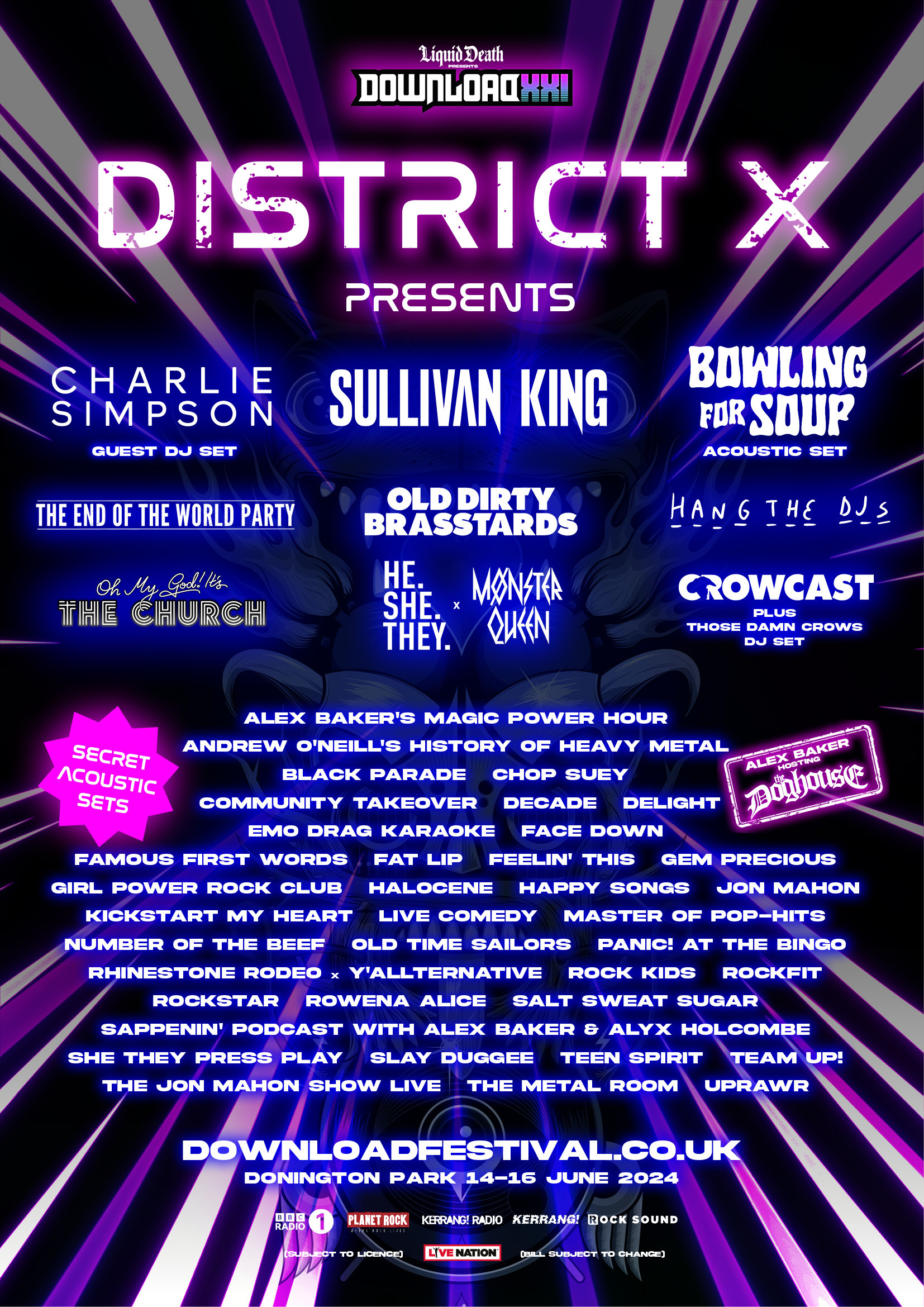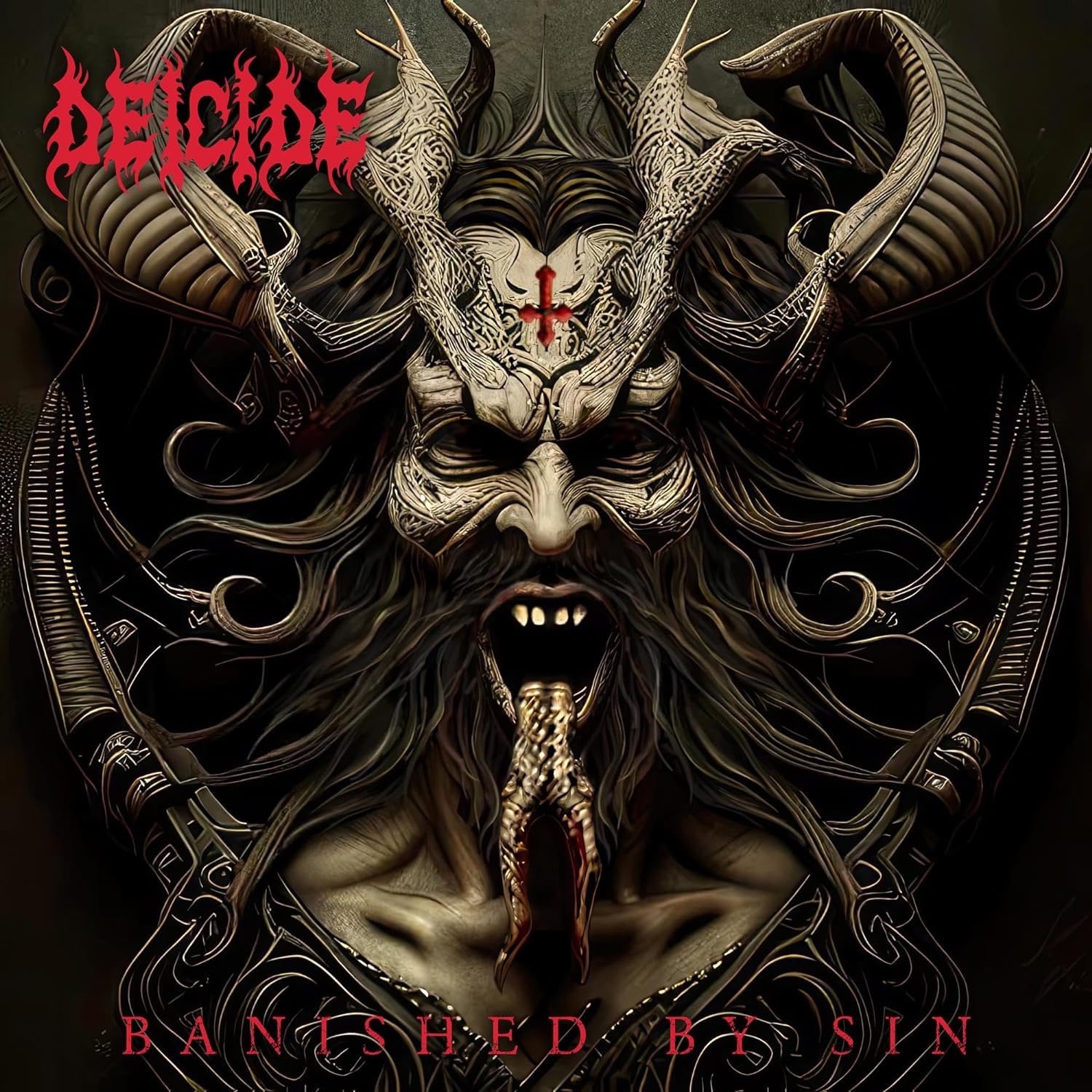Formed in 2007 by Mike Hill, Tombs are a band who are difficult to categorise, their heavy, frequently other-worldly music defying any tag that you’d care to risk throwing at it. The band have undergone the usual trials and tribulations of any working band with a number of members passing through the ranks, but guitarist / vocalist Mike has managed to deftly steer the band, releasing three well-received albums (2009’s ‘winter hours’, 2011’s ‘path of totality and 2014’s ‘savage gold’) as well as a number of EPs, the most recent of which, ‘all empires fall’, appeared to set a yet-more-ambitious tone for the forthcoming album, ‘the grand annihilation’, which is due out on June 16th via the band’s new label, Metal Blade Records. We had the opportunity to submit some questions to Mike Hill, discussing the new album, the line up changes and more – check out his answers below:
Although you work as a band on the final music, I believe that the initial song writing element comes from you. How far do you take the process of developing a given piece before taking it to the band – do you simply go with riffs and a basic concept or do you record rough demos for the band to then work from?
I pretty much always record demo versions of the songs before getting together with the band. Everyone lives in different cities, so it’s important to be efficient with time management. I come up with an arrangement, email the track to everyone so that we all have a basic idea of what’s going on. Of course, things change over time once we get together in the same room.
You’ve had a number of line-up changes, which is always challenging for a band, do you find that different line ups have bought different sets of strengths to the material that you write? Is there a case, for example, that either consciously or unconsciously you write according to the strengths of the current line up or do you just write for you and then they add their own distinctive shades after?
I’ve been through so many different personalities and members that I don’t really write to anyone’s strengths. I usually find someone that can play the way I want them to play and has the abilities needed to be in the band as well as the creative perspective. I have a very focused vision of how I want to band to sound.
‘Savage Gold’ and ‘All empires fall’ were, I believe, thematically linked – does it help in the creation of the music to have a firm concept in mind whilst developing it?
Those record aren’t thematically linked at all. It’s funny when journalists try to connect things like this. I’m more of an instinctual writer when it comes to lyrics. There are similarities but I don’t have any over arching narrative that I’m trying to communicate. I admire bands like Pink Floyd and Rush who can write these very well crafted storylines into their music. Rush 2112 is such a great album, incorporating science fiction, dystopian societies, the philosophies of Ayn Rand; I believe they received some criticism for that. Pink Floyd’s “The Final Cut” is one of my favorite records, with their very British, Post WWII musings. I don’t really have any interest in writing like this.
The lyrics in particular deal with the human place in the greater scheme of the universe – is there any particular literature or philosophy that has informed your musings or is it all from a very personal interpretation from the world (and the universe) as you see it?
I like to read about mythology and alternative histories. The writings of Graham Hancock and his thoughts on Egypt are a big inspiration. I also like to study Roman and Hindu mythologies. In particular the Hindu ideas about the universe being created and destroyed is particularly fascinating to me. It can also be applied to person life. Deep down, I think the Hindus intended for people to apply these ideas their own lives as well as being a story about the universe. I like the idea of destroying your old self so that you can open another doorway into another chapter of life. It’s kind of liberating in a way.
How do you feel you have evolved as a musician over the course of your musical career and how do you see ‘the grand annihilation’ as continuing that evolution?
I think I’ve developed a better sense of quality control. For every 5 ideas, only one actually makes it. It’s like the footage of sea turtles being born and racing to the ocean only to be decimated by predators. Only the fit are able to survive. I like that sort of brutal mentality and apply that to my creative output.
I’m also gaining more confidence in my vocal abilities. I enjoy the challenge of singing instead of just doing the extreme vocal thing. I put in a lot of rehearsal time leading up to the recording process.
It seems that there is a theme in popular media of the notion that to create you must destroy, do you feel that the wider socio-political changes are informing a more nihilistic mindset in artists and can you discuss your own influences on this album?
I don’t agree with that statement. I think in general, most people want to cling to old ideas. Across Europe and the US, there is this return to conservative ideologies. There’s a regression of thought going on. Of course, we have Trump here in the States, the Brits have Boris Johnson, Norbert Hofer in Austria and there’s someone in France that is trying to pull everyone back into stone age philosophy.
None of this influenced any of my music. Introspection is what drives the themes in Tombs. The connection of the internal world with the greater cosmos is what I’m meditating on. Both are actually reflections of each other. It’s perception. No one really knows what is going on cosmically, we can only approximate it with our senses.
How did you come to be on Metal Blade records and to what extent is there collaboration between artist and label – was there an A&R process, or did the label, already knowing your work, simply leave you to deliver the album?
It was simple. Our contract with Relapse was complete. We released the EP All Empire Fall on our own and licensed it to Relapse, they handled manufacture and promotion. After that we had a discussion with our management about doing an LP, looking into what our options were. Metal Blade was interested, we entered into the typical negotiations with our legal representation and that was pretty much that. There is no collaboration creatively with the label.
You’ve once again worked with Erik Rutan, who also worked with you on ’savage gold’, what do you feel he brings to the process of recording?
Rutan is a master of recording extreme music; his contribution is huge. He brings power, precision and impact to the recording. I’ve wanted to work with Erik for many years prior to Savage Gold so I was really excited when we finally got to work together.
He is one of the most detail-oriented engineers that I’ve ever worked with and he’s pushed me further than I think I could have gone on my own. I appreciate that more than anything. We put in long hours of hard work; at the end of the session I was depleted mentally, physically and emotionally. The result is The Grand Annihilation.
How important is the physical packaging of the record to you and how much involvement do you have with that side of the album?
Visual presentation is very important to me. As time goes on, that component of the process grows even more in significance. For that reason, we work with great artists. Thomas Hooper once again has delivered a masterpiece for The Grand Annihilation album artwork. We worked with Valnoir on All Empires Fall.
What’s next for Tombs – are there plans for a tour of the album?
We’re going to be on tour with Fit for an Autopsy when the record is released. We’ll be touring for most of the coming year, but none of it has been announced yet.












Leave a Reply